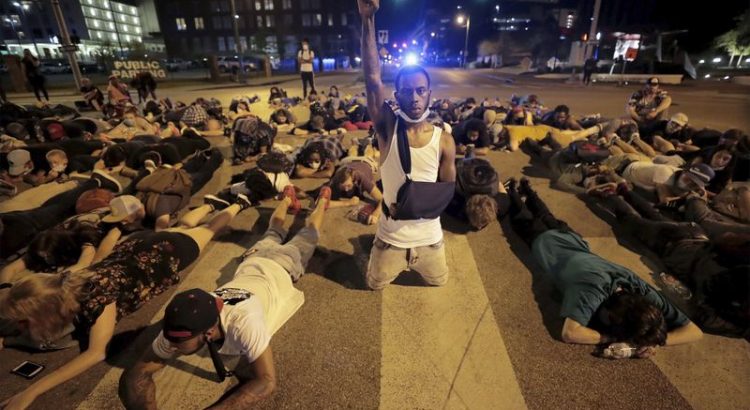The Pilgrims knew first hand the abuses a king could inflict on citizens. They witnessed how easy it was for an army to crush the will of the people simply by refusing to let them assemble, i.e, talk with each other. Minus phones or Internet, the people had no way to connect with their neighbors across the river. That’s why the Pilgrims insisted on the right to assemble. That’s why it appears in our Constitution.
Nowadays some mayors, police chiefs, or presidents mistakenly think the right to assemble is something they can decide to grant—or withhold, or crush. They sound as if they have a right to disrupt peaceful demonstrations by citing, for example, public safety. In this misguided thinking, broken windows are considered a threat to public safety, thereby grounds for disrupting the constitutional right to assemble, whereas killing school children is not enough of a threat to public safety to become grounds for disrupting the constitutional right to bear arms. Alas, four or five Supreme Court justices support this backward thinking.
Since the 1960s, our country has witnessed powerful demonstrations, assemblies that sometimes changed the course of history. Martin Luther King has been memorialized in a national holiday. Yet peaceable assemblies and demonstrations have not cured racial injustice, mistreatment of the poor, and abuse of political or military power. Why not? The answer is that average citizens prefer to vote for peace and quiet. They will tolerate injustice that lives quietly in the shadows, injustice that’s not in their face on the nightly news. They are willing to ignore favoritism in applying laws, prison brutality, falsified records, assaults on the defenseless (particularly women), rigged elections, and so forth. Average citizens will give lip service to opposing corruption, but after a couple of days, they prefer to let it go on quietly—because publicly opposing it creates noise in the streets.
So demonstrations have shown us corruption under the “law,” but we go only half-way before we backtrack and prefer to vote for “order.” The Puritans never expected to change corrupt kings or politicians. Their brilliance was in realizing that, as long as the people were unflaggingly free to assemble, constitutionally free to assemble without interference, then we the people will win the day—maybe not during our children’s lifetimes, but eventually.
Photo by Patrick Lantrip / AP








